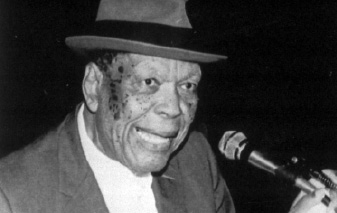Vere Bird
Vere Cornwall Bird, who transformed Antigua, died on June 28th 1999, aged 89
Proudly, the government of Antigua reports that its “offshore financial industry has grown by leaps and bounds”. The American State Department agrees but its enthusiasm for the country’s financial services is muted. Antigua, the department said in a report published in March, is “one of the most attractive centres in the Caribbean for money launderers”.
Such comments were wounding to Vere Bird, who dominated Antiguan politics all his adult life. He considered himself pro-American, and allowed the United States to have military facilities on the island. What were the Americans grumbling about? Mr Bird’s favourite topic was Antigua’s transformation under his leadership from penury to relative prosperity. Antigua was a poor country with an economy based on an uncertain

market in sugar. It now has a prosperous tourist industry and an even more prosperous financial industry, serviced by some 50 loosely regulated offshore banks. Mr Bird happily, and indeed truthfully, proclaimed that Antiguans have achieved the highest standard of living in the Caribbean. Life expectancy is about the same as western Europe’s. Secondary education is free. Unemployment is below 5%. Mr Bird denied that the government tolerated money laundering, just as he dismissed reports that the island is a base for drug smuggling and arms running and has become a favoured meeting place for Russian, Italian and Colombian gangsters involved in these profitable trades.
The Antiguans believed him, or simply did not care where the money came from. Mr Bird won election after election and, allowing for such niceties as unlimited campaign money and with radio and television biased to the government, the ballots were tolerably free. When Mr Bird stood down as prime minister in 1994, his son Lester took over. Lester was re-elected with a big majority at a general election in March.
When the British empire was being dismantled it was unsure what to do with its dozens of small islands like Antigua. Some in the Caribbean are so small that they have remained dependencies. But Antigua and its tiny sister island, Barbuda, with their combined population of 65,000, about that of a medium-sized town in Europe, were allowed to go it alone, bequeathed with a British-style parliament and a decent cricket ground. But whatever Britain’s misgivings about granting independence to this sandcastle, with all the privileges and status of a sovereign state, it had no doubt that Vere Bird was its natural leader.
His towering height – getting on for seven feet – gave him a commanding presence in the Salvation Army, which he joined as a drummer-boy, rising to be a captain, and which provided him with the rudiments of education. The Sally Ann, with its street rallies, also taught him public speaking. Mr Bird’s political speeches had the rhythm of forceful preaching, with frequent references to God. In 1951 he persuaded Antigua’s sugar workers to strike for more pay. The story goes that when a white planter asked what the strikers would eat, Vere Bird said, “We will eat cockles and the widdy-widdy bush. We will drink pond water.”
The widdy-widdy is a weed once used to feed slaves. Whether the strikers survived on it is unclear, but the planters eventually caved in and Mr Bird’s reputation took wing. The same year, 1951, union representatives led by Mr Bird won all eight elected seats on thelocal legislature. The British nurtured him. He was made a minister in the colonial government, then chief minister. He became prime minister on independence in 1981 and his Antigua Labour Party won all subsequent general elections. The British declined to make Mr Bird a knight, an honour often handed out to successful people in former colonies. But Antigua made him a “sir” anyway.
“Papa” Bird’s prestige as the man who gave Antiguans the dignity of independence to some extent protected him from criticism. At his funeral last week at the newly created National Heroes’ Cemetery, the opposition leader, a long-standing critic of government corruption, said that “history cannot but be kind” to Vere Bird. History may be less kind to Mr Bird’s family. As in Indonesia, where members of the Suharto family, rather than the former president, are getting most of the blame for corruption, in Antigua those under fire include some of Papa’s relations. As with the Suhartos, the Birds and Papa’s mistress, Cutie Francis, are sufficiently rich not to be too distressed if, as in Indonesia, the economy goes rotten. But ordinary Antiguans may not be spared. America is getting impatient with the dirty money of Latin American drug barons being laundered in the Caribbean. Since its warning shot in March, American banks have been told to apply “enhanced scrutiny” to their customers’ dealings in Antigua. Partly as a result of pressure from Britain, nine of Antigua’s offshore banks have been closed down. The mobsters, who value their privacy, are said to be leaving the Caribbean for more secluded Pacific islands. Papa’s Antigua may have little that is permanent, save, perhaps, the widdy-widdy bush.